11. Sustainable Communities
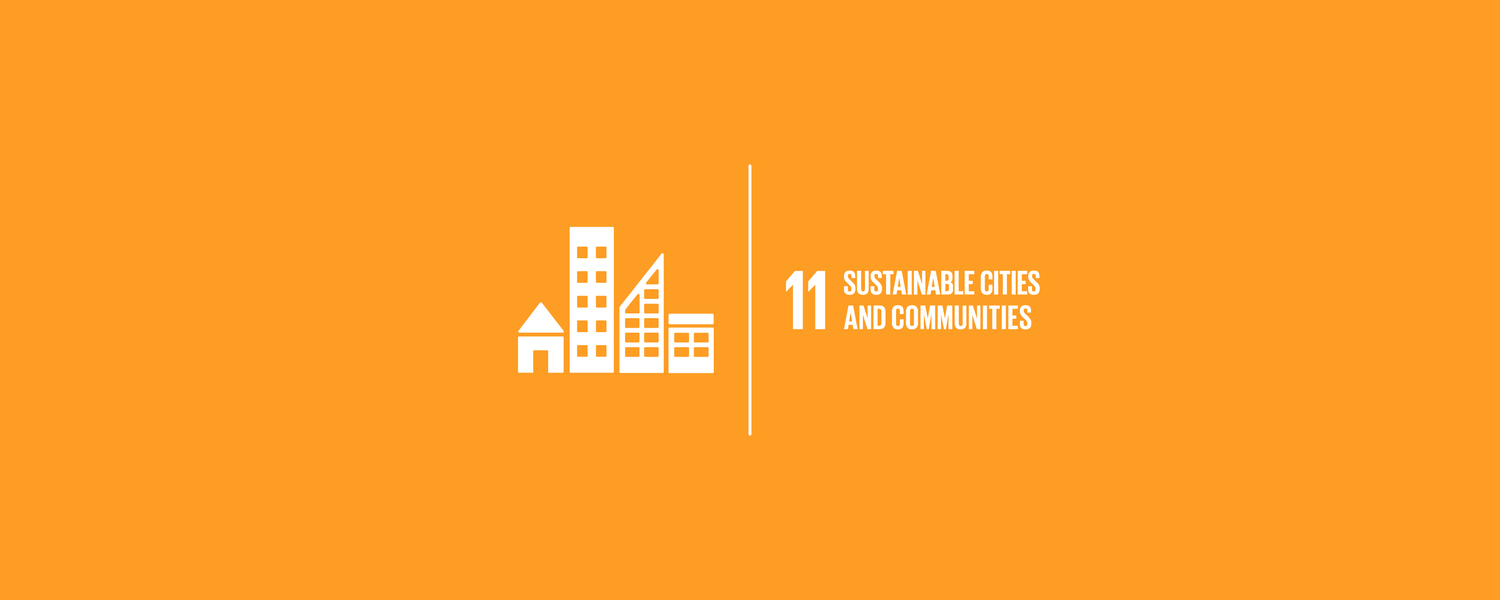
Make cities inclusive, safe, resilient and sustainable
Why It Matters
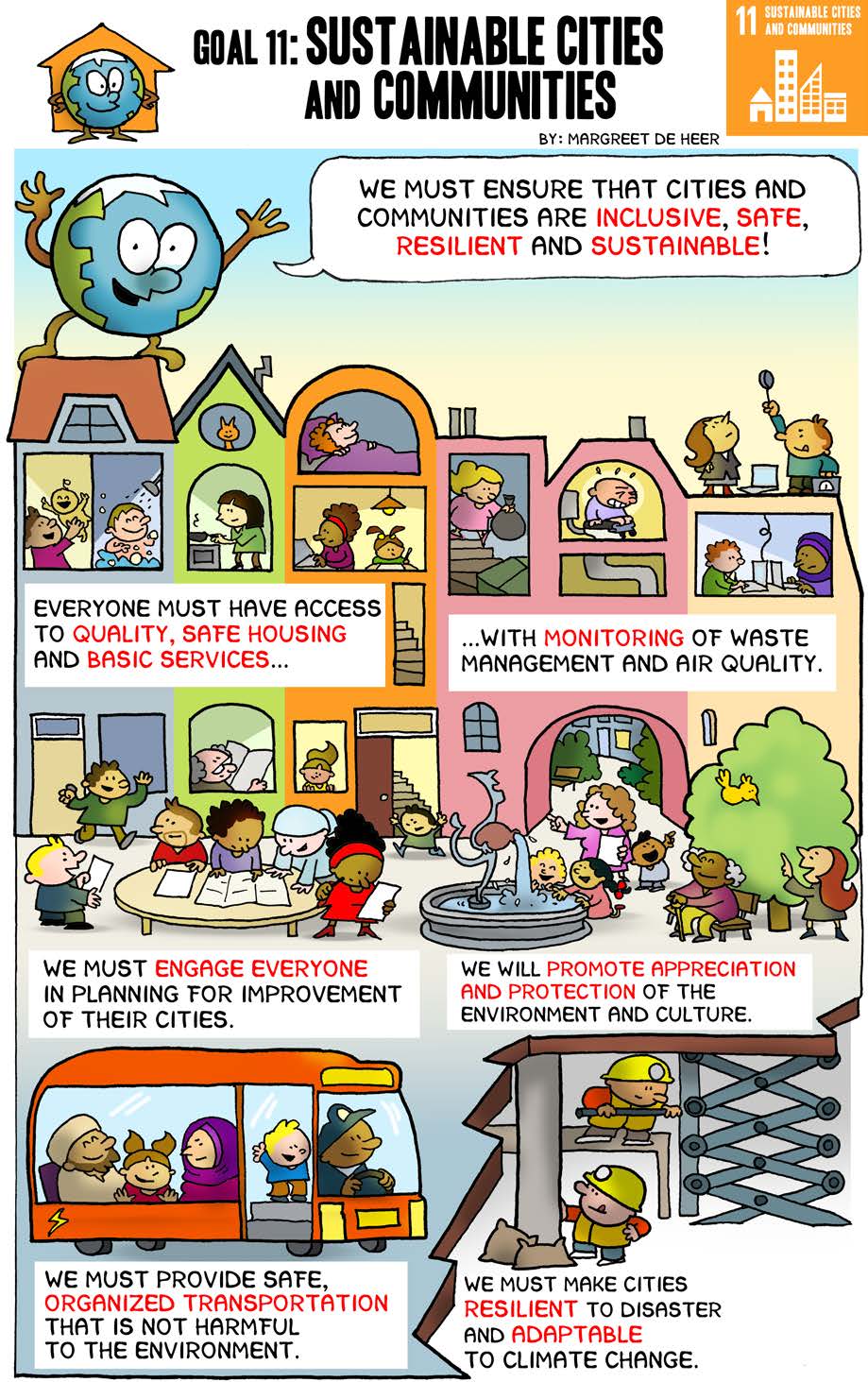
Cities are hubs for ideas, commerce, culture, science, productivity, social development and much more. At their best, cities have enabled people to advance socially and economically.
However, many challenges exist to maintaining cities in a way that continues to create jobs and prosperity while not straining land and resources. Common urban challenges include congestion, lack of funds to provide basic services, a shortage of adequate housing and declining infrastructure.
The challenges cities face can be overcome in ways that allow them to continue to thrive and grow, while improving resource use and reducing pollution and poverty. The future we want includes cities of opportunities for all, with access to basic services, energy, housing, transportation and more.
Facts & Figures
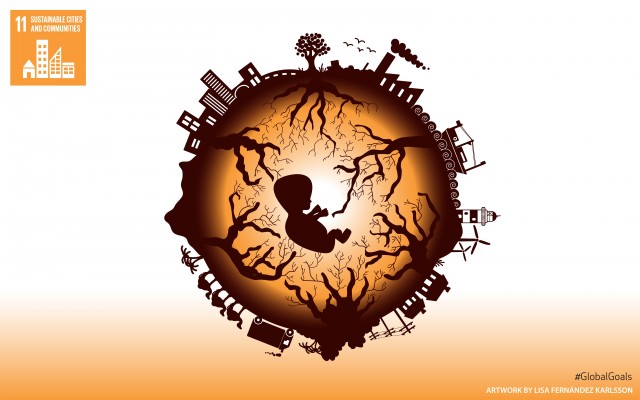
- Half of humanity – 3.5 billion people – lives in cities today
- By 2030, almost 60 per cent of the world’s population will live in urban areas
- 95 per cent of urban expansion in the next decades will take place in developing world
- 828 million people live in slums today and the number keeps rising
- The world’s cities occupy just 3 per cent of the Earth’s land, but account for 60-80 per cent of energy consumption and 75 per cent of carbon emissions
- Rapid urbanisation is exerting pressure on fresh water supplies, sewage, the living environment, and public health
- But the high density of cities can bring efficiency gains and technological innovation while reducing resource and energy consumption
Targets
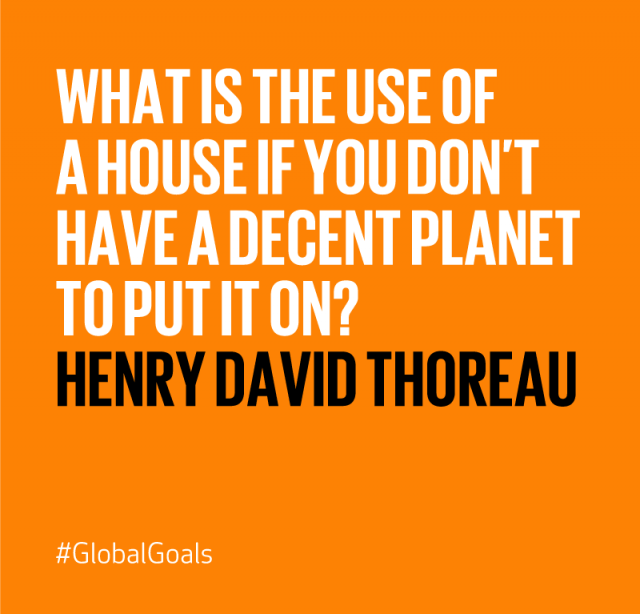
• Ensure all have access to quality, safe housing and basic services.
• Provide safe, organised transportation that is not harmful to the environment and is also specifically designed to serve children, women, and vulnerable people.
• Engage communities in discussions and planning for improvement of their cities.
• Strengthen efforts to protect and safeguard the world’s cultural and natural heritage.
• Increase resilience to disasters.
• Ensure monitoring of waste management and air quality.
• Prepare communities to manage their resources properly and to tackle climate change.
Take Action
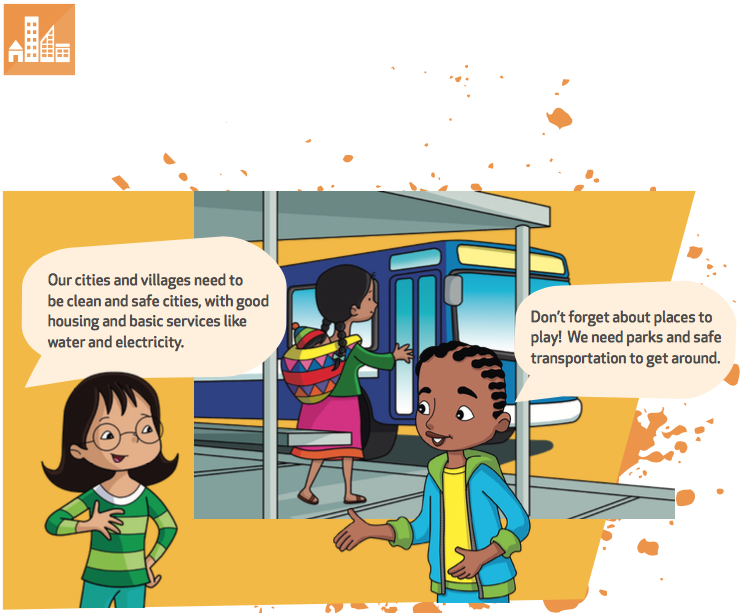
- If you can, bike, walk or take public transport. Save the car trips for when you've got a big group.
- Carpool to work. If you have to drive to work make it worthwhile by sharing your ride with colleagues.
- Support groups that advocate for more public spaces and improvements in public transport, recycling systems and access to public services.
- If your city has a car sharing scheme, take advantage of it. You'll be saving money in car maintenance and studies show they help to reduce the number of cars on the street.
- Take an active interest in the governance and management of your city
- • Take notice of what works, and what doesn’t in your community
- • Advocate for the kind of city you believe you need
- • Develop a vision for your building, street, and neighbourhood, and act on that vision. Are there enough jobs? Are you close to healthcare? Can your children walk to school safely? Can you walk with your family at night? How far is the nearest public transport? What’s the air quality like? What are your shared public spaces like? The better the conditions you create in your community, the greater the effect on quality of life.